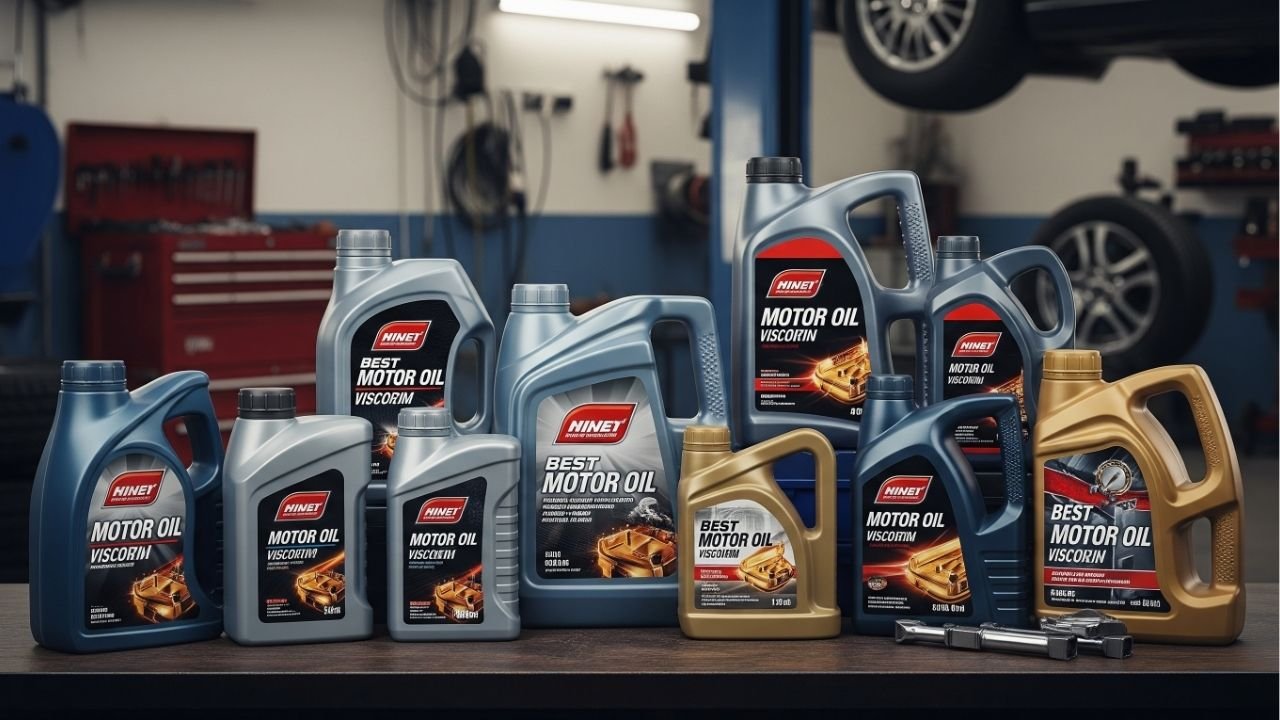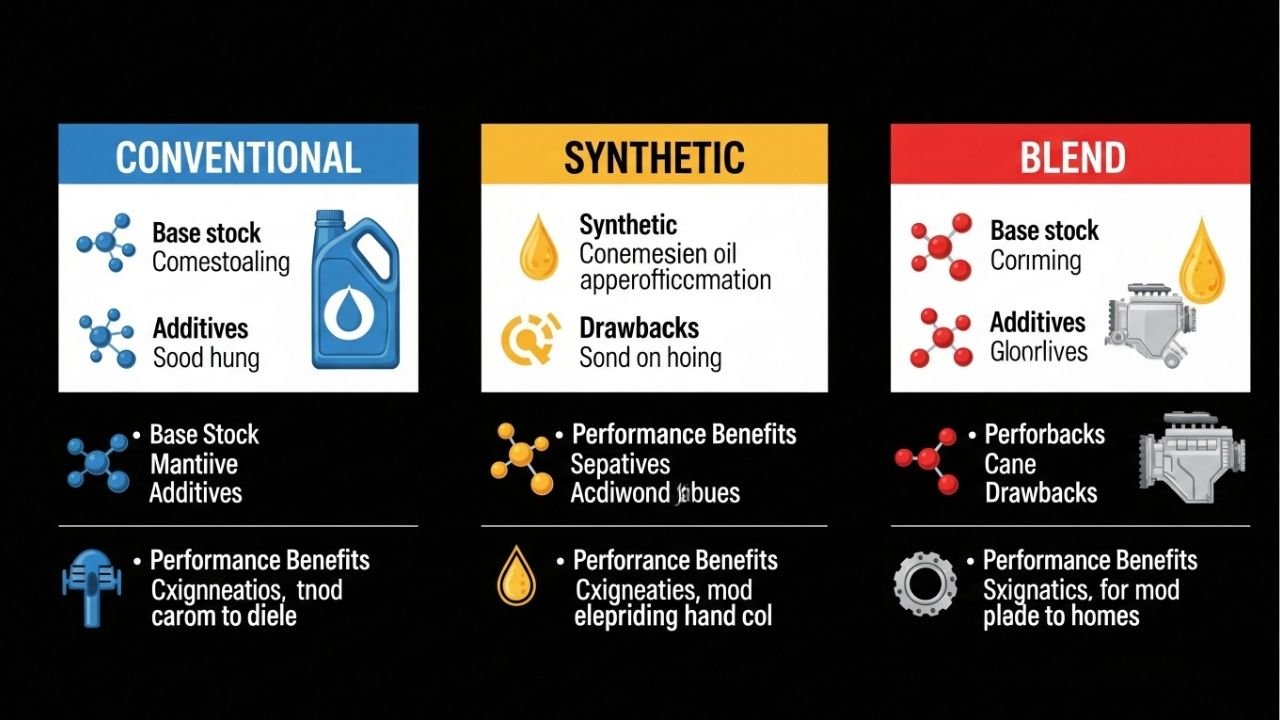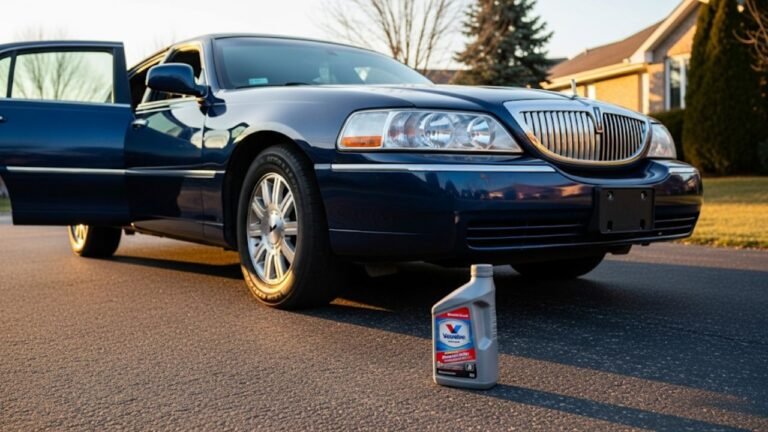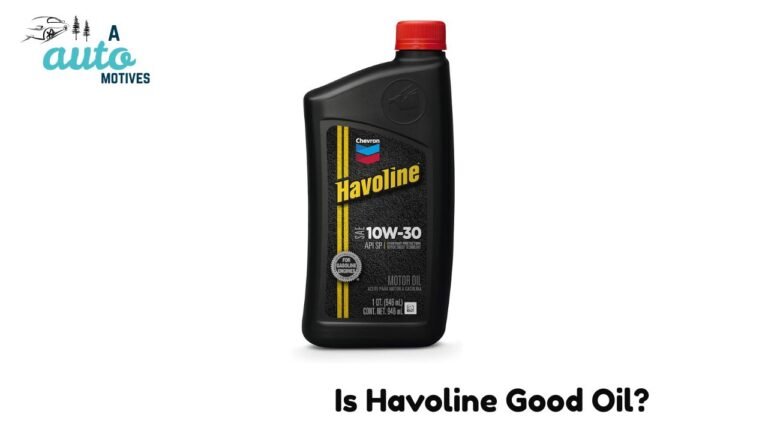Which Is the Best Oil for Your Car? A Friendly Guide

Let’s talk about something that doesn’t usually come up at dinner tables but quietly plays a big role in your car’s life—engine oil. Think of it as your car’s blood. Without the right one, things can get messy—really messy. I learned this the hard way when I poured the wrong oil into my first car, a beloved old Toyota Corolla. It didn’t blow up, but boy, the engine didn’t sound too happy. That little mishap cost me a chunk of my savings—and taught me a lesson I’ll never forget.
In this article, we’ll chat about which is the best oil for your car. I’ll walk you through different types of oil, what your car really needs, and how to make the best decision. No jargon, no boring textbook tone. Just straight-up advice, like you’d get from a car-savvy friend. We’ll also look at what makes an oil “the best”, how your driving style affects your oil choice, and even bust a few myths.
What Does Engine Oil Actually Do?
Let’s start with the basics. Engine oil isn’t just there to keep things slippery. It’s your engine’s silent caretaker, doing several things at once:
-
Lubricates the engine’s moving parts
-
Cools the engine by carrying heat away
-
Cleans by picking up sludge and debris
-
Protects from rust and corrosion
-
Seals tiny gaps between piston rings and cylinder walls
If your oil isn’t right for your car, these jobs won’t be done properly. And that can lead to breakdowns, noisy rides, or worse—engine failure.
Understanding Oil Types: Conventional vs. Synthetic vs. Blends

When we talk about which is the best oil for your car, we have to consider the type of oil. There’s more than one choice, and each comes with its own pros and cons.
1. Conventional Oil
This is the old-school oil, refined straight from crude oil.
-
Great for older engines
-
Affordable
-
Needs more frequent changes
But it breaks down faster, especially under heat or pressure. If you drive in tough conditions, it might not be enough.
2. Synthetic Oil
This is the overachiever in the class. It’s made in a lab to perform better in every way.
-
Handles high and low temps well
-
Lasts longer
-
Offers better engine protection
It’s more expensive, but it might save you money in the long run through fewer oil changes and repairs.
3. Synthetic Blend Oil
Think of this as the middle ground. It mixes synthetic with conventional.
-
Offers some of the benefits of synthetic
-
More budget-friendly
-
Suitable for mid-performance vehicles
Still not as durable as full synthetic, but better than conventional alone.
| Oil Type | Best For | Change Interval | Price Range |
|---|---|---|---|
| Conventional | Older engines, light driving | 3,000 – 5,000 miles | $25 – $35 |
| Synthetic | Newer cars, high-performance use | 7,500 – 15,000 miles | $45 – $70 |
| Synthetic Blend | Daily drivers, mid-range needs | 5,000 – 7,000 miles | $35 – $50 |
Viscosity Ratings: What 5W-30 Really Means
Ever looked at a bottle of oil and seen something like 5W-30 and felt like it was a secret code? You’re not alone.
Here’s the deal:
-
The first number (5W) shows how the oil flows when cold. “W” stands for winter.
-
The second number (30) shows how it performs at engine operating temperature.
So 5W-30 means it flows easily in cold temps (great for cold starts) and remains stable when hot.
Which is the best oil for your car? That depends partly on your car’s recommended viscosity. Always check the owner’s manual—it’s like your car’s personal diary.
Matching Oil to Your Driving Style
Here’s where things get personal. Your choice of oil should match how you actually drive, not just what your car manual says.
If You Drive Mostly in the City…
Stop-and-go traffic stresses engines more than highway cruising.
-
Use full synthetic oil
-
Look for options with extra detergents to fight sludge
If You Have a Long Commute…
Engines get warm and stay warm. Oil performance is more stable.
-
Synthetic blend could be enough
-
Focus on fuel-efficiency boosting oils
If You Tow or Drive in Extreme Heat/Cold…
Heavy-duty conditions call for heavy-duty oil.
-
Full synthetic is your best bet
-
Choose high-temperature rated oils
It’s kind of like choosing clothes—flip-flops aren’t great for hiking, and engine oil is no different.
How to Choose: The Simple Checklist
Here’s a quick guide you can follow the next time you’re oil shopping:
- Check your owner’s manual for recommended viscosity
- Consider your driving habits (long trips vs. short ones)
- Think about your climate (cold, hot, or somewhere in between)
- Compare the cost vs. benefit of synthetic vs. conventional
- Stick with a reputable brand (e.g., Mobil 1, Castrol, Valvoline)
Which is the best oil for your car might change as your car ages, so be ready to adjust over time.
Popular Brands You Can Trust
When standing in the aisle at your local store, the choices can be overwhelming. Here are a few names that consistently show up on top mechanic and driver lists:
-
Mobil 1: Known for high performance and longevity
-
Castrol EDGE: Great for high-mileage engines
-
Valvoline Advanced: Trusted for synthetic blends
-
Pennzoil Platinum: Designed for engine cleanliness
-
Royal Purple: Popular with performance car fans
Each brand offers different viscosity grades and formulas. Always match their product to your car’s needs, not just the label.
Debunking Common Myths About Engine Oil
Let’s clear up a few things that often confuse car owners.
Myth 1: You Have to Change Oil Every 3,000 Miles
Not true anymore—modern oils, especially synthetic, can last up to 10,000 miles or more.
Myth 2: Synthetic Oil Causes Leaks in Older Cars
Synthetic oil doesn’t cause leaks, but it might reveal existing ones due to better flow. That’s a sign to get the seals checked.
Myth 3: You Can Mix Synthetic and Conventional Oil
Technically you can, especially in emergencies. But don’t make it a habit—it weakens the oil’s effectiveness.
Myth 4: Dark Oil Means It’s Dirty
Oil naturally darkens as it works. What matters is texture, smell, and mileage since the last change.
Emotional Moment: What Oil Taught Me About Responsibility
When I was younger, I didn’t think much about maintenance. Oil was just “that thing the mechanic talked about.” But after blowing a gasket due to neglect, I saw how something so simple can cost thousands if ignored.
Now, changing my oil feels almost… meditative. It’s a way of taking care of something that takes care of me every day. And trust me, your car knows the difference between cheap oil and the right oil.
Choosing Oil for High-Mileage and Turbocharged Engines
Once your car crosses the 75,000-mile mark, it becomes a different machine. It’s like a marathon runner—still strong but needs more careful nutrition. This is where high-mileage oils come in. They’re specially designed to care for older engines.
Why High-Mileage Oil Is Different
-
Contains seal conditioners to reduce leaks
-
More detergents to clean built-up sludge
-
Thicker viscosity options to prevent burning oil
If your car starts consuming more oil than usual or you’re noticing leaks, switching to high-mileage oil could be a lifesaver.
Now, if you drive a turbocharged or high-performance engine, your needs shift again. These engines run hotter and harder.
-
Full synthetic oil is a must
-
Look for oils rated for extreme temperature stability
-
Brands like Royal Purple or Mobil 1 Extended Performance excel here
Which is the best oil for your car in these cases? The one that’s built to handle pressure—literally.
Seasonal Oil Considerations: Hot Summers and Cold Winters
Just like we wear different clothes in different seasons, your car might need different oil depending on the time of year—especially if you live somewhere with harsh weather.
Cold Climates
Cold engines need oil that flows easily when it’s freezing out.
-
Lower “W” numbers, like 0W-20 or 5W-30, are ideal
-
Synthetic oils flow better at low temperatures
Ever try to pour honey on a cold morning? That’s what thick oil is like for your engine in winter. Go thinner.
Hot Climates
Heat thins oil, and too-thin oil doesn’t protect well.
-
Use higher viscosity ratings like 10W-40
-
Choose oils with thermal breakdown resistance
Also, hot weather often means long drives and heavy use of A/C—more stress on your engine.
Should You Change Your Oil Yourself or Visit a Pro?
This is one of those decisions that depends on your comfort level, budget, and how much you enjoy getting your hands dirty.
DIY Oil Change
Pros:
-
Saves money (around $20–$40 per change)
-
Gives you full control over oil type and filter
-
Can be oddly satisfying
Cons:
-
Time-consuming
-
Messy without the right setup
-
You must dispose of old oil properly
Professional Oil Change
Pros:
-
Quick and convenient
-
Often includes a free inspection
-
No cleanup hassle
Cons:
-
Can be pricey
-
Shops may upsell or use cheaper oils unless requested
No matter which route you choose, what matters is consistency and using the right oil. That’s the real win.
Signs You’re Using the Wrong Oil
Sometimes your car will tell you—loud and clear—that the oil inside isn’t doing its job.
Here are a few signs:
-
Knocking or ticking noises from the engine
-
Oil leaks or increased consumption
-
Reduced fuel efficiency
-
Thicker or sludgy oil on the dipstick
-
Overheating or rough starts
These are red flags. Ignoring them could cost you much more than just an oil change.
FAQs About Which Is the Best Oil for Your Car
Here are some common questions car owners ask when deciding which is the best oil for your car.
1. Can I switch from conventional to synthetic oil?
Yes, you can. Most modern engines handle it just fine. Some high-mileage engines benefit from synthetic, especially if the switch is done gradually.
2. How often should I really change my oil?
Depends on the oil type and driving conditions. Synthetic oil can last up to 10,000–15,000 miles. Always check your car’s manual and keep an eye on the oil condition.
3. Is more expensive oil always better?
Not necessarily. The best oil is the one that matches your car’s engine needs and your driving style. But with oil, quality does matter more than with many other car products.
4. Does oil brand matter?
Yes. Stick to reputable brands that meet industry standards like API SN, ILSAC GF-6, or ACEA certifications.
5. Can I trust quick lube places to choose the right oil?
They often do a good job, but mistakes happen. Be proactive—ask what oil they’re using and confirm it meets your car’s needs.
6. What’s the best oil for new cars?
Most new cars recommend full synthetic oil with low viscosity, like 0W-20 or 5W-30, for better efficiency and protection.
7. What’s the best oil for old cars?
High-mileage oil, often with a thicker viscosity (like 10W-40), is great for sealing leaks and protecting worn parts.
8. Can oil really improve fuel economy?
Yes. Using a modern low-viscosity synthetic oil can reduce friction and improve MPG by a small but noticeable margin.
Conclusion: Your Car Deserves the Best—So Does Your Wallet
At the end of the day, which is the best oil for your car isn’t about buying the most expensive bottle or following trends. It’s about knowing your car, your habits, and what keeps your engine happy. Just like you wouldn’t put soda in your coffee maker, don’t pour the wrong oil into your engine.
Making the right choice pays off in more ways than one. Better fuel economy. Smoother rides. Longer engine life. Fewer repair bills. And maybe most importantly—peace of mind.
So the next time you’re standing in the oil aisle or Googling product reviews, remember this guide. Think of your car like a trusted friend. Give it what it needs, and it’ll take you far—literally.





